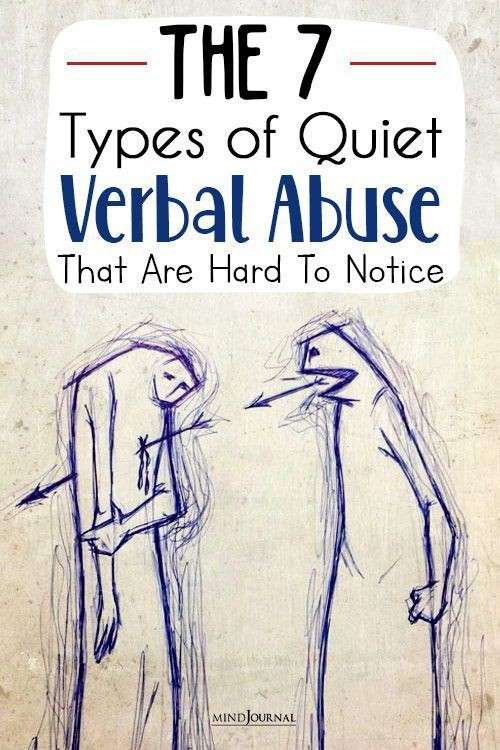Unmasking Silent Cruelty: 7 Types of Quiet Verbal Abuse
In the realm of abusive behavior, not all scars are visible. While physical abuse often leaves tangible marks, verbal abuse can be just as damaging, albeit less conspicuous. Quiet verbal abuse, also known as covert verbal abuse, operates under the radar, leaving victims emotionally wounded and mentally drained. Here, we delve into seven types of silent cruelty that can lurk beneath seemingly innocuous words:
1. **Gaslighting* Gaslighting is a form of manipulation where the abuser distorts or denies reality, making the victim question their sanity. Phrases like "You're overreacting" or "That never happened" chip away at the victim's confidence and sense of reality.
2. **Backhanded Compliments* These are compliments that carry an underlying insult or criticism. For example, saying "You're smarter than you look" or "You're pretty for someone your age" may seem like praise but actually diminish the recipient's self-esteem.
3. **Sarcastic Jabs* Sarcasm can be a veiled form of hostility, where the abuser uses humor to disguise hurtful remarks. Constant sarcasm can create an atmosphere of tension and insecurity, eroding trust and intimacy.
4. **Undermining Confidence* Quietly undermining someone's confidence involves subtle put-downs and criticisms disguised as concern. Statements like "Are you sure you can handle that?" or "You always mess things up" diminish the victim's self-belief and self-worth.
5. **Withholding Information* Silence can speak volumes, especially when it's used as a tool of control. Withholding important information or giving the silent treatment can leave the victim feeling isolated, anxious, and unsure of themselves.
6. **Guilt Tripping* Manipulative individuals often use guilt as a weapon to control others. Phrases like "If you loved me, you would do this" or "I sacrificed so much for you" place undue pressure on the victim, fostering a sense of obligation and indebtedness.
7. **Shifting Blame* Instead of taking responsibility for their actions, abusers often deflect blame onto their victims. They might say things like "You made me do this" or "You're too sensitive" to avoid accountability and maintain power and control.
Recognizing these subtle forms of verbal abuse is the first step toward breaking free from its grip. If you suspect you're experiencing quiet verbal abuse, seek support from trusted friends, family members, or a qualified therapist. Remember, your feelings are valid, and you deserve to be treated with respect and kindness.






